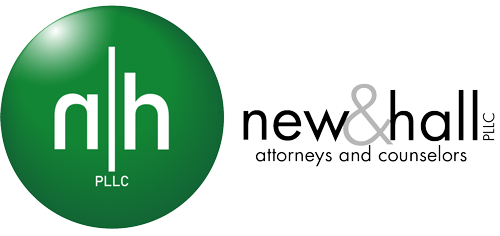How is ownership of your assets designated?
You should consider how you establish ownership of your assets. What does this mean? It means, you may have joint bank accounts, or maybe the cars have only one name on the title, or you and/or your spouse have separate financial accounts. For each asset, how is the title or ownership reflected? You should consider how your family can gain access to your assets in the event of an accident, incapacity, or even after your death.
You can reduce the difficulties your family will face trying to access your money in the event you are unable to in several ways. For example, with a bank account, if it is appropriate, you can add someone as a joint account holder. However, this creates an ownership interest and creates other issues you should consider. Alternatively, you can add someone to an account as an authorized signer that does not acquire any ownership. You should visit with your banker to determine which method is best for you and how to do it. You should also consider adding someone as a POD or TOD designee – Pay on Death or Transfer on Death. This designation will transfer ownership of the account outright upon your death without the need for a probate proceeding and makes the money available more quickly.
Doesn’t my Durable Power of Attorney allow my agent to access my money if I am unable/unavailable? Yes, if your estate plan includes a power of attorney, that will help if you are incapacitated (or simply unavailable, depending upon how it is drafted). However, keep in mind that your Power of Attorney expires when you do. It is a common misconception that a Power of Attorney survives your death.
If you created a revocable trust, you should consider transferring ownership of most of your individual financial and investment accounts, and perhaps other assets as well, into the name of your revocable trust. Remember, if a trust does not own any assets, it does not do anything.
The takeaway here is that your asset ownership plan is an integral part of the estate plan that needs to be taken into account.
Do You Have Beneficiary Designations?
Many assets pass upon death by beneficiary designations. These assets include retirement accounts — like IRAs and 401(k)s — life insurance policies and annuities. As mentioned above, most major financial institutions will allow you to name a beneficiary on non-retirement investment and financial accounts as well – POD/TOD.
You should periodically review these beneficiary designations to make sure they accurately reflect who you want to receive a particular asset upon your death. Incorrect beneficiary designations are a fairly common occurrence — and mistakes can be costly to fix after someone dies, if they are even possible to fix at all.
Is Your House Designated as Your Homestead?
Many states allow you to declare your primary residence as your homestead. Depending upon your state of residence, there can be many advantages to declaring your homestead, such as creditor protection or lower property taxes. Homestead benefits vary drastically by state, and it’s possible they can have an effect on who can inherit, as well. It’s best to consult a local adviser to help you figure out if a homestead is worthwhile in your state. Here in Texas, it is important, without a doubt.
How Long Does My Estate Plan Last?
Your estate plan may need to be updated at some point. As time goes by, changes in your life (or the law) can affect your estate plan. It is important to periodically review your estate plan to make sure it’s still appropriate. Perhaps someone you named in an important role, such as Executor or Trustee has become sick or you no longer are close with that person. Perhaps one of your loved ones is getting divorced, has creditor issues, or has become disabled. A whole variety of things can happen to necessitate updating your estate plan.
A idea is to review your estate plan every five to seven years or whenever there has been a major life or financial change, such as a divorce or the birth of a child or even your parent has passed away and you are receiving an inheritance. You should review your plan with an attorney who can advise you what, if any, changes may be necessary.
What Happens if I Move to a Different State?
A valid document (such as a will, durable power of attorney, health care document or trust) in one state, is also a valid document in another state. However, the particular document might not contain all of the necessary provisions in the new state, and therefore, the document might not work as well or as expected in the new state. For example, Texas wills most frequently provide for an Independent Executor to serve without bond. This means that once the executor is appointed by the court, no further court proceedings are required. By contrast, California does not recognize an Independent Executor and only has Dependent administrations of estates. The difference is substantial and costly. If your will does not provide for an independent administration of your estate, check with an attorney in the state to which you move and see if it should be updated.
Where Should I Keep Original Documents?
You should keep your original documents somewhere safe, yet accessible. However, you should always be in possession of the original Will. In Texas, the original will must be submitted to the court when probate proceedings are started. Although, with extra paperwork, time and effort, it’s usually possible to get a court to accept a copy of a will. So, it really is not a good idea to ask your attorney (or anyone else really) to keep it for you. You may move; the attorney may move; and, like everyone else, attorneys die. Your home filing cabinet is sufficient if you feel it is appropriate.
In most cases, you should avoid keeping the originals in a bank safe deposit box, unless someone other than you and your spouse is a co-signer. A court order is necessary to obtain an original will from a safe deposit box after someone dies if there is no co-signer. For health care documents and trusts, originals have become less important.
Copies typically work just as well as an original. Durable powers of attorney are sometimes an exception in some states. Your state may not provide for use of a copy of any particular document. So, be sure you and your family know where your originals are kept. That way you have them when you need them.
Who Should Have Copies?
In addition to your originals, you should have a fully executed copy of your estate plan (including a digital copy). While copies may have a more limited use than originals, they are important to have so that other family members know what their roles are when the time comes. In addition, if provided copies of your documents, the family will know your intentions and not be surprised by the terms, which could limit future fights.
Consider giving a copy of the documents to the people with important roles in the estate plan (such as executor, trustee, health care agent and power of attorney). If you are uncomfortable doing so, at least make sure the named people know their roles and who to contact if something happens to you. Some people give copies of their plan to their children. The most important thing is that your loved ones know who is charge if something happens to you and where to find the documents to ensure the plan you’ve taken the time and energy to create can be properly implemented. Although a very important note here – no one is an “executor” until a court says that person is the executor. Your will makes only a nomination. No executor powers exist until the court says so.
Getting the estate plan created is the biggest step and the most important. However, do not let your work wither and fade by ignoring simple maintenance. Review your documents every few years even for your own information. If you have questions or want changes, call the lawyer that prepared them and set up a new appointment.
At New & Hall, contact us to provide a free review of your current estate plan. We will only recommend changes that are truly important. We will never revise a plan simply for the purpose of generating business. If your current plan is in good shape, we will tell you so.


